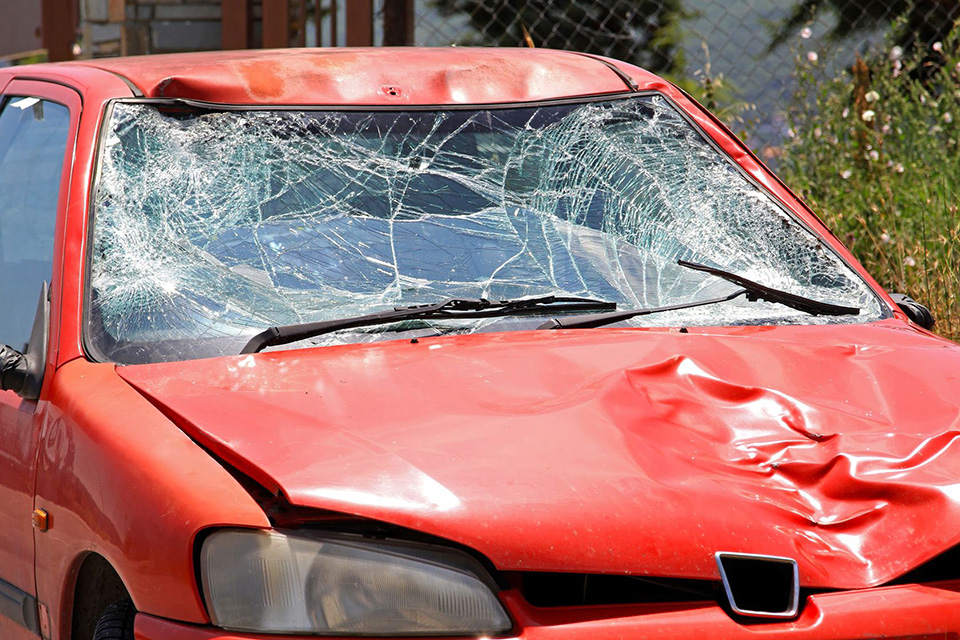Motor Vehicle Accidents
Child Passenger Safety Week Highlights Need to Protect Children
 To parents, there is nothing more important than their children’s safety. In the car, safety starts with child passenger safety seats.
To parents, there is nothing more important than their children’s safety. In the car, safety starts with child passenger safety seats.
This week, the National Highway Traffic Safety Administration is observing Child Passenger Safety Week. This weekend is National Seat Check Saturday, an opportunity for parents to have their child’s safety seat inspected free of charge.
Motor vehicle accidents are the leading cause of death among children in the United States, according to the Centers for Disease Control and Prevention (CDC). Child passenger safety seats have been shown to reduce these deaths. For infants, child safety seats result in a 71 percent reduction in motor vehicle accident deaths.
All 50 states have child passenger protection laws. Violations are a primary offense in Massachusetts and 47 other states, meaning police can stop drivers solely for non-compliance. In Colorado and Nevada, child passenger safety violations are a secondary offense.
In Massachusetts, children must travel in a federally approved child passenger safety seat restraint until they are 8 years old or over 4’9″ tall.
Parents often use child safety seats incorrectly. In one study observing nearly 3,500 child safety seats, 72 percent were misused, according to the CDC. This increases the chance for motor vehicle accident injuries and deaths.
Massachusetts parents can ensure their child safety seat is properly fastened on Saturday, when police departments and not-for-profit organizations will provide free checks.
If you are a parent of a young child, click here to find an inspection station near you.
Click here for information on the Enhanced Child Passenger Safety Law in Massachusetts.
Read More
Protecting Massachusetts Students Heading Back to School
 There is much to plan as students return to school each September. Buying new school supplies and clothes often makes the top of the to-do list, but even more important is planning how your child will travel to and from school safely.
There is much to plan as students return to school each September. Buying new school supplies and clothes often makes the top of the to-do list, but even more important is planning how your child will travel to and from school safely.
Approximately 17,000 children are sent to U.S. emergency rooms each year in school bus accidents, according to a 2006 report in the journal Pediatrics. Some 42 percent of student bus accident injuries and deaths result from crashes. But nearly 25 percent of school bus injuries occur during the everyday activity of boarding and stepping down from the bus.
There are many ways students travel to school: the school bus, parent car pools, walking and bicycling. All of these carry a risk for injuries and accidents – but this can be greatly reduced when drivers and students follow the rules of safety. Here the Boston personal injury lawyers at Breakstone, White & Gluck offer parents tips to keep their children safe:
Avoiding School Bus Accidents:
- Most Massachusetts school districts do not have seat belts on school buses, but if yours does, explain the importance of wearing one to your child.
- Instruct your child to wait until the bus is completely stopped before trying to board or exit.
- Tell your child to stand at least six feet back from the curb as the bus approaches.
- Explain to children they should never cross the street behind a bus because it may result in a pedestrian accident.
- Wait at the bus stop with young children. If you cannot do this every day, ask another parent to share the responsibility with you.
Avoiding Student Pedestrian Accidents:
- If possible, walk to school with your child. Arrange a neighborhood school walk and have parents take turns supervising.
- If your child is walking alone, explain that he or she must cross the street in the crosswalk under the supervision of a school crossing guard.
- Have your child wear bright colored clothing to avoid car accidents.
Avoiding Student Carpool Accidents:
- All children should wear seat belts. In Massachusetts, children ages five to seven or up to 4’9″ tall are required to travel in a child safety seat.
- Children under the age of 13 should ride in the back seat.
- Explain to children they should talk softly and let the driver concentrate on the road.
Avoiding Student Bicycle Accidents:
- In Massachusetts, children and teens age 16 and under are required to wear bike helmets.
- Do not allow young children to bicycle to school.
- Make sure your child has the appropriate experience on a bicycle and is familiar with traveling the route to school.
- Teach children to ride in the same direction as traffic on the right side of the road.
- Children and teens bicycling to school should wear bright colored clothing.
Massachusetts Car Insurance Tips for College Students
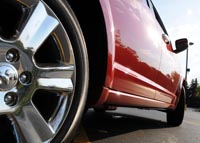 Each September, thousands of college students in Boston, Cambridge and across Massachusetts settle into campus life. And many students enjoy the extra freedom of bringing a car from home to school.
Each September, thousands of college students in Boston, Cambridge and across Massachusetts settle into campus life. And many students enjoy the extra freedom of bringing a car from home to school.
But students often make one costly mistake in the transition to college life. Students who have Massachusetts car insurance policies are required to inform their insurance companies about where the car is primarily kept. Otherwise, if there is a car accident, the insurance company might disclaim coverage, leaving the accident underinsured or uninsured completely. Students who fail to report their change of address and get into a car accident can be denied the Optional Insurance coverages on their policy.
Even if a student relocates a short distance, such as from Dedham to a dorm in Boston, he or she must inform the car insurance company where the vehicle will now be kept. The reason? Car insurance companies rate the coverage — and therefore the cost — on where the car is principally kept. If the car moves from a low-rated area (with fewer accidents) to a higher-rated area, the cost goes up. And if you are not paying the premium for the place where the car is principally kept, the insurance company has the legal right to disclaim coverage. And that can be harsh.
Optional Insurance Coverages Potentially At Risk Include:
Bodily Injury: This protects you from claims against your personal property if you cause a serious car accident.
Uninsured Auto: This coverage protects you and the people in your car if the person who causes the motor vehicle accident has no insurance.
Medical Payments: The first $8,000 in medical bills and lost wages are covered under the Personal Injury Protection (PIP), part of the Compulsory Coverage all Massachusetts drivers must purchase. Medical Payments provides policy holders extra protection for medical and health insurance.
Collision Comprehensive: If you are involved in a car accident, this coverage insures the damage to your vehicle.
Insurance issues can be very complicated, and you should not hesitate to call your agent if you have any questions.
Click here to read our article, “Understanding and Buying Massachusetts Car Accident Insurance.”
Another resource is, “Frequently Asked Questions on Auto Insurance,” by the Massachusetts Consumer Affairs and Business Regulation office.
Massachusetts Drivers Not Stopping for School Buses
 A new pilot program shows drivers in three Massachusetts communities are failing to stop for school buses, a violation of state law and a safety concern as students prepare to head back to school.
A new pilot program shows drivers in three Massachusetts communities are failing to stop for school buses, a violation of state law and a safety concern as students prepare to head back to school.
The program is underway in Medford, Quincy and Seekonk, where school buses have been equipped with video cameras behind the vehicle’s long stop-sign arm. The cameras capture the license plates of cars which violate the law and cause school bus accidents.
In Medford, the cameras captured 112 motor vehicle violations in 105 days, according to The Boston Globe. Some 57 violations were recorded over 55 days in Quincy while Seekonk had 45 violations over 53 days.
Under Massachusetts law, drivers cannot be issued citations based solely on video evidence. A police officer or bus driver must observe the violation and testify to it. Fines start at $250 and drivers with two or more offenses can have their license revoked.
Massachusetts is one of many states that allow traffic cameras, but they are currently only used to catch toll-evading drivers on the Massachusetts Turnpike. Proposed legislation aims to prevent school bus accidents by allowing cities and towns to submit video footage as evidence.
Drivers can keep children safe and avoid motor vehicle citations by paying close attention this September. The Boston personal injury lawyers at Breakstone, White & Gluck offer these safety tips to prevent school bus accidents:
- State law requires drivers to stay at least 100 feet behind a school bus at all times.
- Drive slowly and watch for children walking in the street, especially in areas with no sidewalks.
- Watch for children playing at bus stops.
- Yellow flashing lights signal the bus is slowing down to stop.
- Red flashing lights and an extended arm indicate the bus is stopped to let children on or off.
- Do not start driving again until the stop arm folds back up and the bus starts moving.
- Do not attempt to pass a school bus.
- Watch for children when backing out of your driveway. If you see children, ask them to move to the sidewalk until you drive away.
Click here for the state law on driving near school buses in Massachusetts.
The Massachusetts motor vehicle accident lawyers at Breakstone, White & Gluck are experienced in handling all types of traffic cases, including school bus accidents, pedestrian accidents and crosswalk accidents. Contact their Boston office today.
National Grid Backhoe Accident on I-495 Puts Focus On Safety
A deadly motor vehicle crash involving a National Grid truck hauling a backhoe on I-495 has put the focus on the safety measures commercial trucks must take to protect other drivers.
The National Grid dump truck was being taken on a test drive Friday, Aug. 12, 2011 when the 2007 Case backhoe/front-end loader it was hauling rolled off and landed on top of a 2000 Toyota Sienna van. The backhoe and the van were sent down a 20-foot embankment off I-495 in Southborough.
The van was carrying four people. A Westford woman in her 70s was pronounced dead at the scene. The driver, a 10-year-old and a 13-year-old, were transported to UMass Memorial Medical Center in Worcester with serious personal injuries.
The driver of the National Grid truck did not sustain injuries. The Registry of Motor Vehicles has suspended his license indefinitely, pending the outcome of the investigation of the National Grid backhoe accident. Prior to the truck accident, he had no recent driving violations, but minor infractions in the 1980s, including citations for speeding, failure to stop, an unregistered or improper equipment, reported the Boston Herald.
The Worcester County District Attorney’s Office and State Police are investigating the National Grid truck accident. A National Grid spokesman told the Telegram & Gazette of Worcester that the truck was being taken on a test drive because employees had identified safety considerations with the vehicle.
State Police are investigating whether the vehicle, a 2010 Freightliner truck, had been recalled by Daimler Trucks North America, according to local media reports.
State Police are also investigating whether driver error and mechanical problems were involved, as well as whether the backhoe was properly secured.
Contact our Boston lawyers today
The Boston car accident lawyers at Breakstone, White & Gluck have over 80 years combined experience handling complex motor vehicle collisions involving commercial trucks, construction vehicles and construction equipment. If you or a loved one has been injured in an accident involving construction vehicles or unsafe loads, please contact us today for a free consultation at 800-379-1244, or use our contact form.
Drive Safe in August as Motor Vehicle Accidents Rise
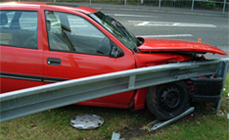 You may think winter snowfall makes for treacherous driving. But government figures show August is actually the most dangerous month on the roads, making it an important time to take precautions.
You may think winter snowfall makes for treacherous driving. But government figures show August is actually the most dangerous month on the roads, making it an important time to take precautions.
Based on records dating back to 1994, the National Highway Traffic Safety Administration (NHTSA) reports more Americans die in car crashes in August than at any other time of the year. In August 2009, that number totaled 2,864 deaths.
September had the next highest rate of traffic fatalities, followed by July. Weekends are the deadliest time on the roads throughout the year. Nationwide in 2009, there were an average of 123 deaths each day on Saturdays and 107 deaths on Sunday.
Experts say motor vehicle deaths rise in August because more people are on the road traveling for vacation, taking day trips and attending summer events.
Because of these factors, it is paramount to practice safe driving. Here, our Massachusetts personal injury lawyers offer safety tips to protect you and your family:
- Do not drink and drive.
- Travel slowly at night and make sure you are familiar with your route.
- Reduce distractions by putting away your cell phone and GPS.
- When traveling with children, explain you must concentrate on the road.
- On the highway, make sure children have distractions such as books and games.
- Never leave a child unattended in a vehicle.
- Wear your seat belt.
- Do not speed.
- Talk to teenagers about taking safety precautions such as limiting passengers and avoiding night driving.
Driving With Dogs Is An Increasing Distraction On The Roads
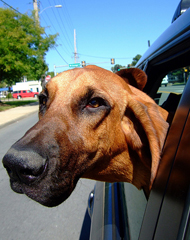 You are probably familiar with the list of distractions usually responsible for car accidents: texting while driving, talking on your cell phone, eating, the GPS and your children fooling around in the car.
You are probably familiar with the list of distractions usually responsible for car accidents: texting while driving, talking on your cell phone, eating, the GPS and your children fooling around in the car.
Well here’s another one to consider: if you are taking your family dog with you, there are additional things you should think about to avoid motor vehicle accidents.
Many people think about their dogs as affectionate friends, not as distractions on the road. But a new survey finds many drivers allow their dogs to ride with them in the car without restraints, increasing the risk for car accidents and serious injury to themselves and others, including the dogs.
The online survey by AAA and Kurgo, a manufacturer of pet travel products, polled 1,000 dog owners who had driven with their pets in the past year. More than half (56 percent) of the respondents reported driving with their dog at least once in the past month and 19 percent had taken their hands off the steering wheel to prevent their dog from jumping into the front seat.
Some 17 percent of the dog owners admitted to letting their dog sit on their laps as they drove and 13 percent said they fed their dog treats. Most alarming, 3 percent reported they had taken pictures of their dog while driving.
Only 16 percent reported putting their dog in a restraint while driving. Nearly 40 percent said they never considered buying a restraint and 42 percent said they believe their dogs are calm enough to ride without restraint.
While many of us have smiled at the sight of a dog hanging his head out of a car window, the survey highlights the fact that our dogs are becoming an increasing distraction on the roads. It is in everybody’s best interest to restrain animals in the car to avoid accidents.
The bottom line: Be your dog’s best friend. Get a proper restraint and avoid letting your dog be a dangerous distraction, even when just traveling around town on errands.
Read More
Prevent Teen Driving Accidents This Summer
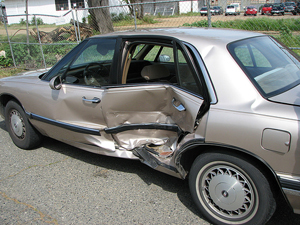 Summer is here and many teenagers who have licenses want to get behind the wheel and drive around with friends. But we all must remember safety first and to help them take precautions.
Summer is here and many teenagers who have licenses want to get behind the wheel and drive around with friends. But we all must remember safety first and to help them take precautions.
Motor vehicle crashes are the leading cause of death for teens in Massachusetts and across the country. In 2009, eight teenagers ages 16 to 19 died each day from motor vehicle injuries. When teenagers survive accidents, they may be left to cope with painful injuries that require years of recovery. And others are likely to be seriously injured as well.
The majority of teen car accidents happen within the first year a teen holds a license. The risk increases when teens drive with their friends or when they drive at night. While many associate drowsy driving with truck drivers, teen drivers are also likely to drive with sleep deprivation, increasing the likelihood of car accidents.
Many auto accidents result from driver inexperience. Because of this, teen drivers should stay on familiar roads for a few years. For example, it is probably too much for teenagers to attempt to drive from Worcester to Boston, Cambridge or Quincy during rush hour alone in their first year. Work up to distance. But talk to them about shopping plaza and fast food parking lots. These are frequent stops for teenagers. But parents can help teenagers by visiting stores with them, suggesting safe areas to park and talking to them about the busy hours. By waiting an hour, teens can drive into safer conditions.
Teen driving accidents can also result from recklessness, immaturity, ignoring safety laws, driving drunk and driving while distracted. Distracted driving behavior includes driving to loud music, being overly involved in conversations with friends, eating and drinking, talking on a cell phone and texting while driving.
The reckless behavior includes drag racing and car surfing on the exterior of a motor vehicle. This thrill-seeking behavior often leads to teens falling off the car and suffering head injuries and other injuries. This behavior is dangerous anytime a vehicle is moving, even at low speeds of 5 mph.
Massachusetts has a graduated licensing law for teenagers. Operators must hold a driver’s permit for six months before applying for a Junior Operator’s License at 16 1/2. They graduate up to a full license at 18.
For the first six months of holding a license, junior operators cannot ride with anyone under 18 in the car, except for family members. Teens are not allowed to use cell phones or drive between the hours of 12:30 a.m. to 5 a.m. They face stiff penalties if caught operating under the influence of alcohol.
The state has a strong law, but parents must speak to their teens before and after they receive their license about concentrating on the road, wearing seat belts and using good judgment when driving or riding as a passenger. Because teens are out of school and looking for things to do, summer is the most important time of year to have this discussion.
Resources for Parents
The Boston personal injury lawyers at Breakstone, White & Gluck have compiled a few resources to help parents talk to teenagers about avoiding car accidents:
Teen Safety Materials from the Centers for Disease Control & Prevention
Massachusetts Court Rules Against Insurer in Bad Faith Case – Victory for Consumers
The Massachusetts Appeals Court recently ruled that Metropolitan Property and Casualty Insurance Company may have violated state law when it failed to make prompt payments on a no-fault claim. The ruling reversed a trial court decision, and remanded the matter to the trial court for further proceedings on the plaintiff’s claims against the insurance company for bad faith.
Importantly, the court stated that the emotional distress the plaintiff claims she suffered could be considered as part of her damages under the Consumer Protection Act, M.G.L. c. 93A. There is very limited authority in Massachusetts for emotional distress damages in claims under M.G.L. c. 93A.
The facts of the case were straightforward. Ms. Chery was injured in a car accident and obtained medical treatment. Metropolitan was responsible for personal injury protection (PIP) benefits, but failed to pay the bills within thirty days, as required by M.G.L. c. 90, Sec. 34M. The plaintiff filed suit, claiming violations of c. 90, c. 93A, and c. 176D, which governs claims and settlements. The insurance company eventually paid the bills, then claimed it could not be liable for its bad faith claims handling. The District Court judge agreed and plaintiff appealed.
The Appeals Court agreed that the claimant had no further right under the insurance contact itself, as the bills had been paid. However, the court found that there was evidence of bad faith, and the simple payment of the bills did not cure the harm caused by the delay. Among other things, the plaintiff had to file suit, incur litigation expenses, and suffer the unreasonable delay. The plaintiff also claimed that she suffered emotional distress, as her bills were put into collection, and she worried about her credit being affected. The court specifically ruled that the emotional distress damages, even though not readily quantifiable, may be considered compensable under Massachusetts law.
The case was a victory for Massachusetts consumers.
The case is Chery v. Metropolitan Property and Casualty Insurance Company, Massachusetts Appeals Court No. 10-P-103 (June 16, 2011).
We Help Consumers Who Have Been Injured by the Bad Faith of Insurance Companies
Our firm has a long history of helping consumers with claims against Massachusetts insurance companies for bad faith settlement practices. Massachusetts law can be quite favorable for consumers when an insurance company fails to settle a case when liability is reasonably clear. The court may award up to triple damages, depending on the circumstances of the case.
Please feel free to contact us if you have any questions about claims against insurance companies. Our toll free number is 800 379 1244.
Drive Safely This Memorial Day Weekend
As 35 million Americans plan to travel this Memorial Day weekend, we urge drivers in Massachusetts and throughout New England to think safety.
Travel will be down 100,000 travelers from 2010, which saw a 14 percent increase from the year before, according to the auto club AAA. Approximately 30.9 million people plan to drive 50 miles or more to their Memorial Day destination.
When this many drivers are on the road, it is especially important to watch out for those around you to avoid traffic accidents. That includes pedestrians, bicyclists and motorcyclists as well as other cars. Here are some things to remember while traveling this holiday weekend:
- Wear seatbelts and make sure everyone in the car does the same. It is the law in Massachusetts and has proven effective in preventing traffic fatalities. In 2008 alone, seat belts saved more than 13,000 lives nationwide, according to the National Highway Traffic Safety Administration (NHTSA).
- If you are traveling with children, make sure child passenger seats are in compliance with the law. Passenger seats can save lives in motor vehicle accidents. Click here to learn about Massachusetts’ child passenger seat law.
- When the roads are congested, watch out for aggressive drivers. Aggressive driving behavior may include someone who is following you too closely, speeding or gesturing at you. Avoid eye contact. Do not gesture back. Make it your goal to move away from the driver and not be involved in an aggressive driving car accident. If you can get the driver’s license plate, report the driver to authorities when it is safe to do so.
- Avoid driving fatigue. Do not drive if you have had inadequate sleep, worked an excessive number of hours or late at night without proper rest.
- Give motorcyclists more distance – three or four seconds – when following from behind to prevent a motorcycle accident. The goal is to give the motorcyclist enough time to make decisions and stop quickly if needed.
- Be aware that a motorcycle’s flashing turn signal can be deceptive. The signal may not be self-canceling and a motorcyclist may forget to turn it off. Wait to see whether the rider actually turns or a motorcycle accident may result.
- Allow bicyclists 3 feet clearance when passing on the road.
- Yield to cyclists at intersections and traffic signals before making your own driving decisions.
- Watch out for pedestrians and runners even in areas you may not expect them. In 2009, pedestrian deaths accounted for 12 percent of all traffic fatalities.
- Be vigilant about not driving while distracted and not texting while driving. It may be easy to let your guard down when you are relaxing among friends and family. But motor vehicle accidents happen fast and it is best to focus on the road.
- If you are drinking alcohol, do not drive, bicycle or walk on the road.


